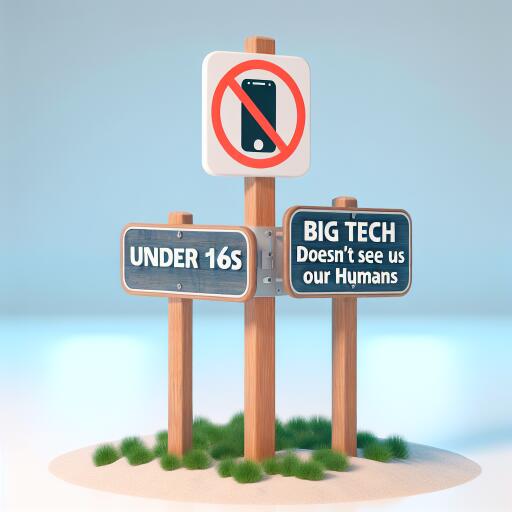Should We Ban Social Media for the Under-16s? A Deep Dive into the Debate
In today’s digital age, the debate around social media usage among children is hotter than ever. With concerns over privacy, mental health, and exploitation, the question arises: Should we ban social media for individuals under the age of 16? Let’s explore the significant facets of this critical issue.
The Dangers Facing Our Youth
Social media, while a platform for connection and creativity, has also become a double-edged sword. Reports and studies reveal alarming trends, where adolescents engaging in excessive social media use exhibit double the risk of experiencing symptoms of anxiety and depression. An investigative piece highlighted the dark side of platforms like Snapchat, where it’s implicated in fueling a teen opioid crisis with drugs peddled openly. TikTok, not far behind, shows a disproportionate number of harmful videos related to eating disorders to vulnerable users.
Perhaps more compelling is the stance of tech insiders themselves. It’s noteworthy when a former Facebook executive restricts his own children from using the platform—indicating a clear acknowledgment of the dangers lurking within these digital environments.
The Argument for Regulation
Regulating activities deemed harmful to children is not a novel concept. From alcohol and tobacco to driving and voting, society imposes age restrictions to protect the developing minds of the young. Why then, should social media be any different? The addictive nature of these platforms, designed to keep users engaged (and sellable to advertisers), can argue for a careful reevaluation of unrestricted access.
Comparisons have been drawn to past public health responses, such as the elimination of lead in paint, demonstrating that when the well-being of the populace is at stake, innovation can lead to safer alternatives. Why then can’t the digital domain adapt in a similar fashion to protect our children?
Challenging the Status Quo
Detractors might argue that banning social media for the under-16s is an impossible, even absurd, undertaking. Yet, history is replete with examples where once-unsolvable problems were addressed through legislation, innovation, and societal shift. The emergence of mobile phones designed specifically for children, offering connectivity without the pitfalls of the internet, underscores the possibility of a middle path.
The responsibility to protect the younger generation should also catalyze the tech giants to innovate and find ways to verify age or offer safer online environments. If legislation can push towards a healthier dietary industry, why can’t similar pressure lead to a more responsible and ethical digital arena?
The Broader Implications of Social Media Regulation
Banning social media for children does not address the broader spectrum of concerns. The algorithms that drive user engagement on these platforms often do so at a great cost to societal cohesion, promoting division, extreme ideologies, and even dangerous behaviors without transparency or user consent.
The call for transparency and ethical practices in algorithm design is not just a plea for the protection of children but a demand for an internet that fosters genuine connection, democracy, and well-being. As pioneers of the digital age themselves express regret over the current trajectory of social media, it’s a wake-up call for users, policymakers, and developers alike to envision and work towards a digital ecosystem that prioritizes human dignity over profit.
Conclusion
The debate around banning social media for those under 16 touches on fundamental questions about technology, society, and the nature of protection we owe to our younger generations. It’s a conversation that challenges us to envision a digital future that aligns with the highest ideals of well-being, ethical engagement, and mutual respect.
As we continue to navigate this uncharted territory, let’s consider not just the immediate impacts of social media on youth but the long-term implications of our digital habits on society as a whole. Perhaps then, we can find a path that safeguards both our children’s future and the integrity of the digital world they will inherit.









